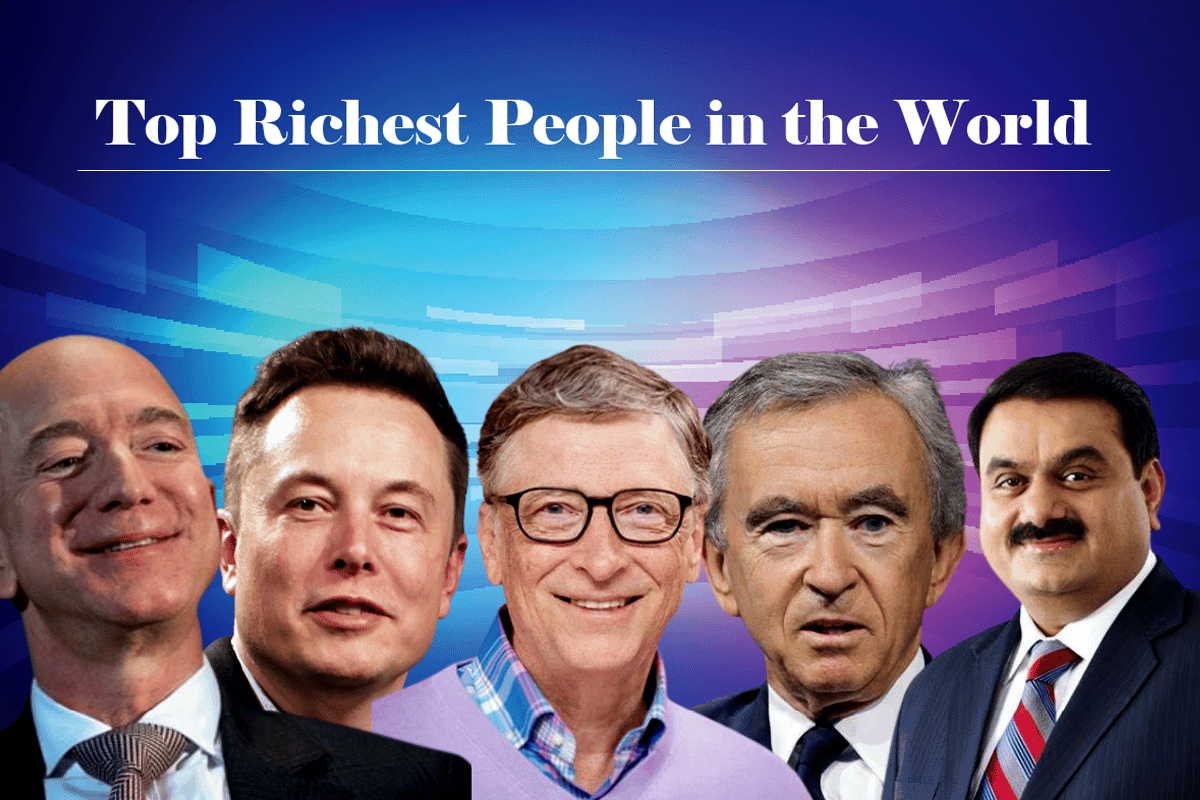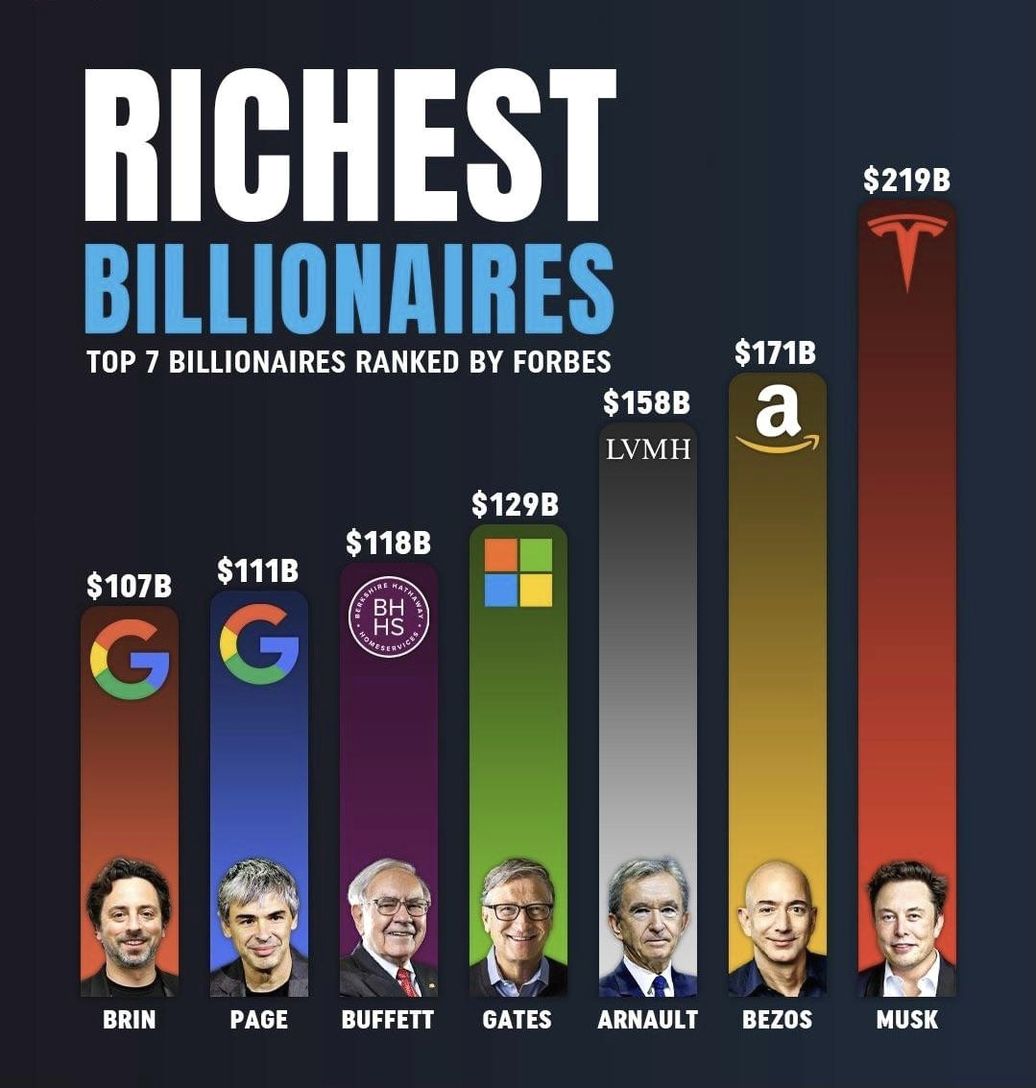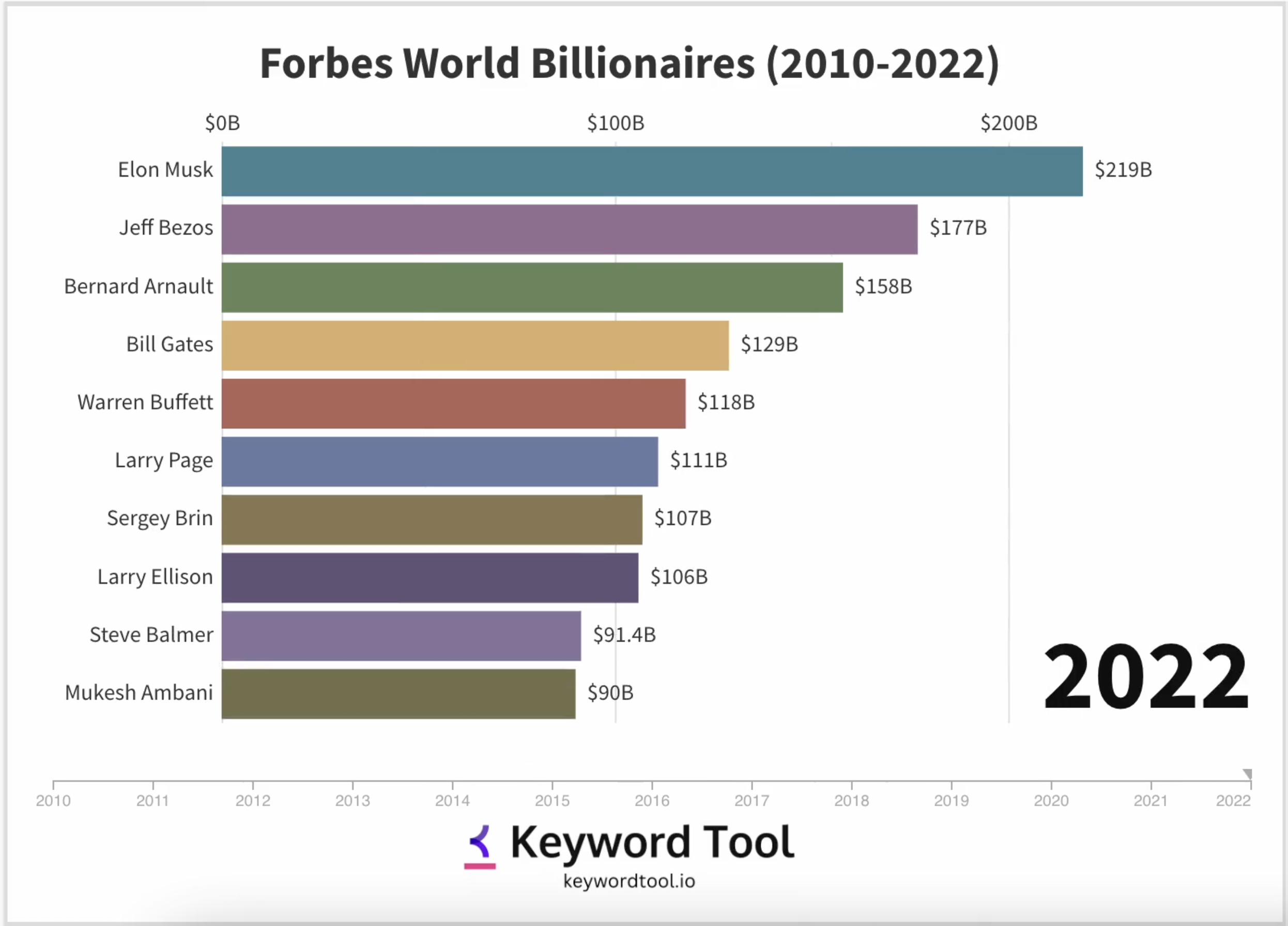Have you ever stopped to ponder who the richest artist of all time might be? It's a question that, you know, sparks a lot of curiosity, isn't it? People often wonder about the fortunes amassed by creative geniuses throughout history. We think about the incredible masterpieces and the legacies left behind, but what about the money side of things? It's a fascinating thought, to say the least, to consider the financial standing of someone like, say, a Renaissance master or a celebrated modern painter.
Actually, pinning down the wealthiest artist in all of history is a bit trickier than it sounds, and that's, you know, for a few good reasons. When we talk about wealth today, we often look at very specific metrics, like net worth, which is something our current financial systems track pretty diligently. But going back hundreds of years, the way people earned, saved, and measured their riches was, in a way, quite different. There weren't, for example, daily updated billionaire indexes or annual lists like we see now.
So, while the idea of a single "richest artist" is a compelling one, the truth is that current data, like what you might find browsing today's rankings of the wealthiest people and families globally, tends to focus on individuals whose fortunes come from, you know, big business ventures and investments. These are the folks whose net worth, age, and other financial details are regularly compiled and presented by organizations that specialize in tracking immense wealth. It's a really different ballgame when you're talking about, say, a painter from the 17th century versus a tech CEO today.
Table of Contents
- The Challenge of Defining Artistic Wealth
- How Modern Wealth Is Tracked and Who Is On Top
- Why Artists Aren't Typically on These Lists
- The Value of Art Versus Personal Fortune
- FAQ About Wealth and Artists
- A Final Thought on Artistic Legacy and Riches
The Challenge of Defining Artistic Wealth
It's a really interesting thought, isn't it, trying to figure out who the richest artist ever was? The thing is, the concept of "richest" changes quite a bit depending on when and where you're looking. For artists of earlier eras, like the Renaissance or even before, their wealth wasn't just about money in the bank. It was, in some respects, about patronage, land, influence, and perhaps even the sheer volume of commissions they received. We don't have, you know, detailed financial records for someone like Leonardo da Vinci or Michelangelo in the same way we have them for, say, a modern-day tech titan. Their earnings might have been in the form of housing, food, materials, or even prestige, which, you know, is hard to put a dollar figure on centuries later.
Moreover, the value of currency itself has shifted so dramatically over time. A sum that seemed enormous in, say, the 1500s would be almost impossible to directly compare to today's billions. There's also the question of what counts as "artistic wealth." Is it the money they made from selling their works, or does it include the value of their personal possessions, their studios, or any investments they might have made? It's a pretty complex puzzle, actually, trying to get a clear picture across different historical periods. So, while we might admire the success of artists who lived lavishly, definitively ranking them by modern wealth standards is, well, nearly impossible.
How Modern Wealth Is Tracked and Who Is On Top
When we talk about wealth today, especially about the very richest people, we rely on pretty specific methodologies. Organizations like Forbes and Bloomberg, for example, spend a lot of time tracking the fortunes of the world's wealthiest individuals. They look at things like stock market performance, economic conditions, and, you know, the value of private assets. This information is, in fact, updated regularly, sometimes even daily, as the Bloomberg Billionaires Index does.
According to the information available, like what Forbes presents for its 2025 world's billionaires list or the Bloomberg Billionaires Index as of July 1, 2025, the very richest people are primarily those who have built vast empires in business and technology. For instance, Elon Musk, the CEO of Tesla, is, you know, the richest person in the world, a title he's held since May 2024. His estimated worth, as of March 7, 2025, was a staggering $342 billion. That's, you know, an incredible sum, more than the bottom 1,500 billionaires combined, which is pretty wild to think about.
And then there's Alice Walton, who is, actually, the richest woman in the world, as of July 1, 2025. She's the daughter of Walmart founder Sam Walton, and her fortune stands at an estimated $107 billion. She, in a way, reclaims that title from French L'Oréal heiress Françoise Bettencourt Meyers, who was, you know, also incredibly wealthy. You can see how these lists provide a snapshot of each member's wealth, usually as of a specific date, like September 1, 2024, for The Forbes 400 list of richest Americans. It's all about, you know, tracking their net worth, industries, and how global wealth rankings shift with every market movement. Larry Ellison, for example, overtook Mark Zuckerberg as the world's second wealthiest person at one point, showing how quickly these rankings can change. These lists, like the 2024 Forbes list which includes a record 3,028 billionaires worth a combined $16.1 trillion, really focus on quantifiable business wealth.
Why Artists Aren't Typically on These Lists
It's pretty clear, isn't it, that when you look at these major wealth rankings, you don't typically see artists listed among the top billionaires? And there's a good reason for that, you know. The kind of wealth that puts someone like Elon Musk or Alice Walton on these lists comes from owning large stakes in massive companies, from innovative technology, or from, you know, inheriting vast business fortunes. Their wealth is often tied to publicly traded stocks, which can be valued daily, or to huge private enterprises with very clear financial statements. That's just how it works, more or less, with these kinds of rankings.
Artists, even incredibly successful ones, usually generate their wealth in a rather different way. Their income comes from selling their works, from performances, from licensing their creations, or from, you know, perhaps teaching or commissions. While some contemporary artists, musicians, or actors can certainly earn millions, even hundreds of millions, their personal fortunes rarely, if ever, reach the multi-billion-dollar levels seen with, say, the founders of global corporations or major retail chains. It's a completely different scale of wealth accumulation, you know, when you compare the two. So, you won't find, for instance, a famous painter or a celebrated sculptor on the list of the world's 10 wealthiest people, according to the Bloomberg Billionaires Index, which tracks folks like Elon Musk and others whose wealth is updated daily based on market performance.
And it's not to say that artists aren't incredibly successful or well-off. Many are, very much so! But their path to wealth is just, well, it's pretty distinct from the path of a business magnate. The structure of the art market, while it can involve very high prices for individual pieces, doesn't typically lead to the kind of continuous, exponential wealth growth that comes from, you know, owning a significant portion of a multi-trillion-dollar company. That's why, basically, when you view the richest people in the world and learn their net worth, age, country of residence, and source of wealth, you'll see a lot of entrepreneurs and investors, but typically not traditional artists.
The Value of Art Versus Personal Fortune
It's actually quite important to distinguish between the value of an artist's work and their personal fortune. A painting by, say, Vincent van Gogh might sell for hundreds of millions of dollars today, making it one of the most expensive artworks ever. But Van Gogh himself lived a life that was, you know, pretty modest, and he sold very few paintings during his lifetime. The immense value of his work today is a testament to his artistic genius and its enduring appeal, not to his personal wealth while he was alive. It's a very different thing, you know, to be the creator of something incredibly valuable versus being personally incredibly wealthy.
Similarly, think about contemporary artists whose pieces fetch high prices at auction. While they might earn a good living, a significant portion of the sale price often goes to galleries, auction houses, and previous owners. The artist's personal take-home, while substantial, doesn't usually accumulate to the level of, say, a centibillionaire like Elon Musk, who, as of March 7, 2025, was worth an estimated $342 billion. These 15 centibillionaires are worth $2.4 trillion—more than the bottom 1,500 billionaires combined, which is a mind-boggling figure. That kind of wealth is generated through massive business operations and investments, not typically through the direct sale of individual artworks, however valuable they might be. So, while art itself can be incredibly valuable, the artist's personal bank account is, you know, usually a separate matter.
And it's also worth noting that the art market, while robust, is different from, say, the tech or retail sectors. The way wealth is generated and circulated is just, well, it's pretty unique. For example, Dangote is the richest black billionaire, but he isn’t the only one; his wealth comes from cement and other industries, not from painting or sculpture. This distinction is pretty key when you're trying to understand why "richest artist" is a difficult title to bestow using the same metrics that track, you know, the world's top billionaires like those on the 2024 Forbes list, where information is as of March 8, 2024. You can see here for a detailed methodology about how these fortunes are calculated, and it's mostly about business assets.
FAQ About Wealth and Artists
How is an artist's net worth typically calculated today?
Today, an artist's net worth, like anyone else's, is usually calculated by looking at their assets, like their bank accounts, investments, real estate, and the value of their unsold works, minus any debts they might have. It's, you know, a pretty straightforward accounting process for living artists. However, for most artists, their personal net worth is very different from the total market value of all their creations. For example, the bloomberg billionaires index ranks the world’s richest people globally, updating their net worth daily based on stock market performance, economic conditions, and details about the calculations are provided in the net worth analysis on each billionaire’s profile page, which is very much about financial holdings.
Were historical artists compensated differently than modern artists?
Yes, they were, actually, quite different. Historically, many artists worked under a patronage system, where wealthy individuals, the church, or royalty would directly commission works and often provide artists with housing, food, and materials in exchange for their art. They weren't always paid a lump sum for each piece as much as they were, you know, supported as part of a household or court. This made their "wealth" more about security and status than about a large bank balance. It's a very different model from how artists, you know, earn their living today by selling works in galleries or through agents.
Can an artist become a billionaire?
While it's extremely rare, it's not impossible for an individual with an artistic background to become a billionaire, but it usually involves ventures beyond just selling art. For example, a musician might become a billionaire through massive record sales, tours, and, you know, very smart investments in other businesses, or by owning a successful record label or media company. Similarly, an artist might launch a hugely successful brand or enterprise related to their art that then generates enormous wealth. But simply selling paintings or sculptures, even at high prices, doesn't typically lead to a billion-dollar fortune. The kind of wealth that makes someone like Elon Musk the richest person in the world, a title he’s held since May 2024, comes from, you know, a completely different scale of economic activity.
A Final Thought on Artistic Legacy and Riches
So, while the quest to name the "richest artist of all time" is, you know, a very compelling one, it's clear that the answer isn't as simple as checking a list. The way we measure wealth today, with daily updates and detailed breakdowns of net worth, is a pretty modern invention. It's designed to track the fortunes of people like Elon Musk, who is, you know, the richest person in the world with an estimated $342 billion as of March 7, 2025, or Alice Walton, the richest woman, worth an estimated $107 billion as of July 1, 2025. These are figures derived from massive business empires and investments, which is just, well, it's a different kind of wealth than what most artists, past or present, accumulate.
The true wealth of an artist, in a way, often lies not in their bank account but in their lasting impact on culture, their ability to move and inspire people, and the timeless beauty or profound ideas embedded in their creations. That's a kind of richness that, you know, can't be measured in dollars or tracked on a daily index. It's a legacy that transcends mere financial figures. To learn more about global wealth rankings on our site, and to explore how these immense fortunes are tracked, you can also link to this page for a detailed methodology. It's a fascinating subject, really, thinking about what truly constitutes wealth, both in the world of finance and in the world of art.



Detail Author:
- Name : Verda Blick PhD
- Username : kieran.orn
- Email : emaggio@gmail.com
- Birthdate : 1978-03-23
- Address : 776 Luisa Dam New Maryberg, OK 05600-9106
- Phone : 970-278-5111
- Company : Russel, Emmerich and Ward
- Job : Airfield Operations Specialist
- Bio : Quas nobis autem quo molestiae quibusdam. Officiis perspiciatis adipisci reiciendis et aut enim consequuntur alias. Quia eum vitae sunt accusantium. Non ipsam in velit tempora est quo numquam.
Socials
tiktok:
- url : https://tiktok.com/@dexter_kuphal
- username : dexter_kuphal
- bio : Error quia voluptatibus sunt cumque aliquam quia.
- followers : 3176
- following : 2827
linkedin:
- url : https://linkedin.com/in/kuphal1995
- username : kuphal1995
- bio : Minima velit itaque placeat aut.
- followers : 3196
- following : 2705
twitter:
- url : https://twitter.com/dexter_kuphal
- username : dexter_kuphal
- bio : Animi laudantium omnis omnis aut iste. Qui asperiores minima dolore. Id ab non ut molestiae est quia quo. Quia distinctio voluptas est maxime alias nisi.
- followers : 6561
- following : 942